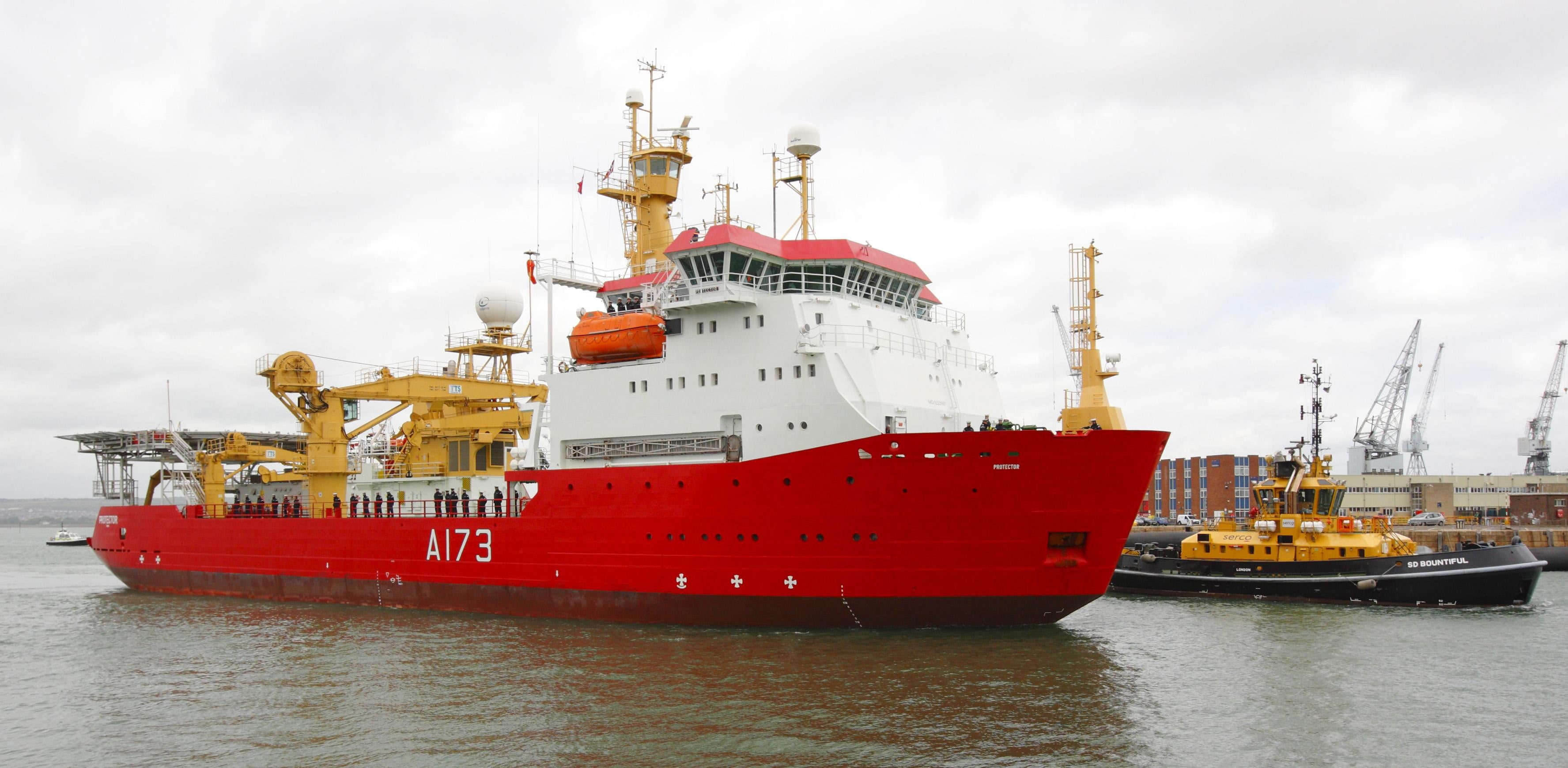Royal Navy’s icebreaker ship provides support to Ukrainian Antarctic scientists
HMS Protector handed over welcome supplies of fresh food to 21 scientists from Ukraine.

The crew of the Royal Navy’s icebreaker ship have provided “support and solidarity” to Ukrainian scientists based in Antarctica.
Plymouth-based HMS Protector called in at the polar research station of Vernadsky which is manned by 21 scientists from the war-torn country.
The navy crew, who delivered food and supplies, described hearing how the Ukrainians had families trapped by the Russian invasion.
Captain Michael Wood, from HMS Protector, said: “During time spent ashore, the team confirmed the welfare of the 21 scientists who had spent the winter at Vernadsky.
“Welcome supplies of fresh food were passed to the station leader.
“Many of the station staff reported families stranded under attacks in Kharkiv and Kyiv.”
The Ukrainian research base is located on Galindez Island off the west coast of the Antarctic Peninsula.
It was originally established as the British Antarctic Survey’s Faraday Station, but was transferred to Ukraine under a Memorandum of Understanding between the British Antarctic Survey and the State Institution National Antarctic Scientific Centre of Ukraine in early 1996.
The Ukrainian scientists conduct research of the Earth’s magnetic field, radio sounding of the ionosphere in the Southern Polar region, hydro-meteorological research, and geophysical research of the lithosphere – the Earth’s crust and upper part of the mantle.
They also study the ecology of the western Antarctic biosphere as well as looking into the medical effects of living and working in the continent’s extreme environment.